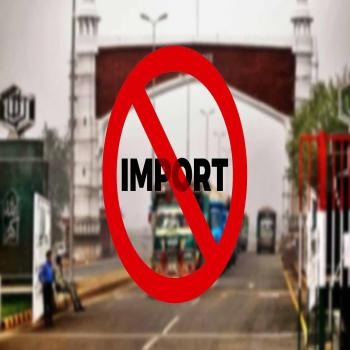The recent incident in Pahalgam, Kashmir, has once again stirred deep emotions across the country. As anger and grief spread, many people are asking, can India put a stop to the flow of Indus river waters into Pakistan? It’s a fair question, especially when emotions run high, but the answer isn’t simple.
The water sharing between India and Pakistan is governed by the Indus Waters Treaty (IWT), signed back in 1960 with the World Bank as a guarantor. This agreement has surprisingly survived even the wars fought between the two nations and is often seen as a rare example of cooperation.
Following the horrific attack in Kashmir, India reportedly suspended parts of the treaty as part of its broader response, which includes diplomatic pressure and economic steps against Pakistan. India continues to accuse Pakistan of supporting terrorism, a claim Islamabad strongly denies. In turn, Pakistan warned that any move to block river water would be seen as a direct act of war.
Under the treaty, India has full control over the eastern rivers Ravi, Beas, and Sutlej, while Pakistan receives the majority of water from the western rivers Indus, Jhelum, and Chenab.
Tensions over the treaty are not new. Pakistan has raised concerns before about India’s construction of dams and hydro projects, claiming they could restrict water flow. India, on the other hand, argues that its projects are within the treaty’s legal framework.
Interestingly, the situation becomes more complex when we look beyond just India and Pakistan. The Indus River actually originates in Tibet, and China, a close ally of Pakistan, sits upstream. After the 2016 Uri attack, when India declared that “blood and water cannot flow together,” China blocked a tributary of the Brahmaputra, raising concerns about how water can be used as a geopolitical tool. Today, China is also working on what might become the world’s largest dam in Tibet, which could further shift the balance.
Coming back to the core question, can India stop the water? According to Shiraz Memon, a former Pakistani water commissioner, the answer is not so straightforward. India legally cannot block Pakistan’s share of water under the treaty. Also, India currently lacks the storage infrastructure needed to hold back large amounts of river water. Even if such projects were initiated, they would take years to complete.
Moreover, terminating the treaty is not a decision India can make unilaterally. The World Bank is a third party to the agreement, and Pakistan could challenge any violation at an international level.
Pakistan’s water rights are non-negotiable, and any Indian attempt to block or manipulate river flows will be met with a firm national response
India may beat the drums of nationalism and use water as a tool of pressure, but it cannot bend the rules of international law or rewrite the terms of the Indus Waters Treaty through emotional rhetoric or threats. Pakistan is not a weak or silent observer; it is a sovereign nuclear state with the capacity to respond in kind, diplomatically and militarily if forced to do so.
Let it be clear Pakistan’s water rights are non-negotiable, and any Indian attempt to block or manipulate river flows will be met with a firm national response. The Pakistan Army, known for its resilience and sacrifice, stands as a powerful guardian of not just our borders but our lifelines, rivers, resources, and dignity. History has shown time and again that Pakistan will not be bullied into submission.
India may try to use incidents like Pahalgam to justify extreme actions, but blaming Pakistan without evidence and threatening core resources like water only exposes India’s insecurities and double standards. If India truly wants peace, it should respect treaties and stop pointing fingers every time there's internal unrest in Kashmir.
Until then, Pakistan must remain united – its state, its army, and its people as one unshakeable force ready to defend what is rightfully ours.
India may not be legally able to stop water flow to Pakistan, and any attempt to do so would backfire diplomatically, environmentally, and morally
In conclusion, while emotions after attacks like the one in Pahalgam are justified, decisions involving international treaties must be based on long-term strategy, not short-term anger. Instead of attempting to cancel the treaty, India should focus on fully utilising the water it is legally entitled to under the IWT a step it has yet to fully take even after all these years.
India may not be legally able to stop water flow to Pakistan, and any attempt to do so would backfire diplomatically, environmentally, and morally. If peace and stability in South Asia are the true goals, then both nations must uphold the agreements they have signed, especially those as crucial as the Indus Waters Treaty.
Rather than escalate tensions, India should focus on dialogue and lawful use of its share under the treaty. And Pakistan must continue to stand firm in protecting its rightful access to the waters that sustain its people and economy.






